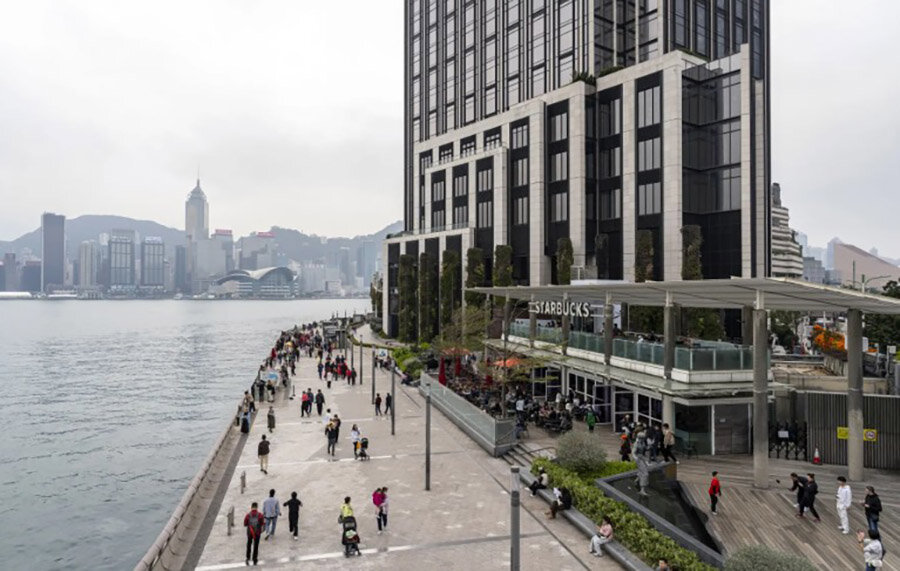read also
Major Hong Kong Developer Exits Chinese Market Amid Creditor Pressure

Photo: Bloomberg
Hong Kong developer group New World Development (NWD) has begun selling properties in mainland China after securing the largest refinancing deal in its history—HK$88.2 billion ($11.2 billion)—finalized on June 30, according to Bloomberg.
The company is offloading assets in parts, including K11 projects in Shanghai, Hangzhou, and Shenzhen. Prospective buyers are being offered individual lots—a strategy that accelerates transactions and helps restore liquidity faster. Private equity funds and investment entities capable of swift decision-making are the primary targets. The asset sale is a mandatory condition imposed by the consortium of bank lenders that agreed to the June financing package.
The refinancing was finalized on the very day loan covenants were set to expire. Without it, NWD risked immediate debt recovery demands. As a result, repayment deadlines for HK$63.4 billion originally due in 2024–2025 have been extended by three years. The developer pledged about 40 properties as collateral, including the Victoria Dockside complex in central Hong Kong. Loans maturing after 2027—amounting to HK$24.1 billion—were not renegotiated but require additional collateral. As of the end of 2024, NWD’s total obligations stood at HK$210.9 billion. Beyond bank debt, the developer also faces bond repayments totaling $7.9 billion.
Additionally, NWD plans to raise up to HK$15.6 billion against Victoria Dockside as collateral. According to Morningstar analyst Jeff Zhang, the refinancing offers only short-term relief without reducing overall debt. Bloomberg Intelligence estimates the company’s net debt stood at 96% of shareholders’ equity. By the time of the refinancing deal, NWD shares had lost over 90% of their peak value from 2019.
Hong Kong’s Economy: Budget Decisions Amid Stagnation
Hong Kong’s real estate market is experiencing a prolonged downturn. Housing prices have hit their lowest level in nine years, and office rents have dropped 40% since 2019. Shopping malls face rising vacancies and declining revenues as tourist inflows from mainland China remain limited. For developers, residential sales and commercial property rentals remain key revenue sources.
According to Bloomberg Intelligence, NWD’s completed investment properties in mainland China were valued at HK$50 billion ($6.4 billion) at the end of 2023. The K11 Tower in Shanghai is up for sale at 2.85 billion yuan ($397 million). More than 50% of NWD’s sales in the 2023–2024 fiscal year were tied to China, compared to around 30% for Sun Hung Kai Properties, making New World more vulnerable to China’s economic slowdown.
Earlier this year, NWD held talks with Chinese state-owned enterprises about a potential full exit from its mainland business, but no agreement was reached. The company is now focused on partial asset sales and fulfilling obligations to creditors.
Financial troubles have been accompanied by management changes. In 2024, NWD posted its first annual loss in 20 years. Subsequently, Adrian Cheng, grandson of the group’s founder, stepped down as CEO. His successor, Eric Ma, served for only two months before Echo Huang was appointed CEO in November 2024. Such frequent leadership changes are unusual for major Hong Kong developers with family-run structures.
The company remains under the control of the Cheng family, whose fortune Bloomberg estimates at $25.5 billion. The group also includes Chow Tai Fook Jewellery and the Rosewood hotel chain, led by Sonia Cheng. The family has previously attempted to support NWD financially, including buying out subsidiaries and injecting around HK$21.7 billion, but debt levels have continued to rise.
According to S&P Global Ratings, a potential default by a major Hong Kong developer could halve new home sales and drive prices down by as much as 7% in 2025. This would worsen the debt ratios of other market players, increase the risk of non-performing loans, and intensify pressure on the banking system. Banks’ exposure to New World remains undisclosed, but the developer’s scale implies systemic implications for financial stability.
The refinancing deal has bought the company time, but conditions require asset disposals and debt reduction. The outcomes of the K11 and Victoria Dockside transactions will largely determine NWD’s resilience and the broader impact of the crisis on Hong Kong’s financial system.








